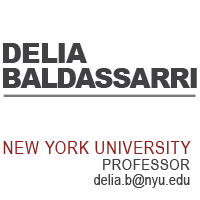CLICK HERE TO RETURN TO ARTICLES
2017 S. Cowan and D. Baldassarri “ “It could turn ugly”: Selective Disclosure of Political Views and Biased Network Perception,” Social Networks, 52:1-17. [lead article]
ABSTRACT: This article documents individuals selectively disclosing their political attitudes and discusses the consequences of these communication patterns for social influence and the democratic process. Using a large, diverse sample of U.S. resident adults, we ask under which conditions do people reveal their political preferences versus keeping them close to the vest. We find Americans are more likely to share their opinions with friends and family rather than co-workers and they are more likely to share their opinions on more salient topics. More importantly, they withhold their political attitudes specifically from those with whom they disagree in an attempt to avoid conflict. This produces the experience of highly homogeneous social contexts, in which only liberal or conservative views are voiced, while dissent remains silent, and oftentimes goes unacknowledged. This experience is not the result of homogeneous social contexts but the appearance of them. Paradoxically, the mechanism of selective disclosure, whose goal is to prevent conflict at the micro-level, might lead to the perception of greater division in the larger society.
+ Click here to download the paper
